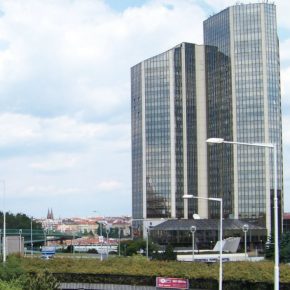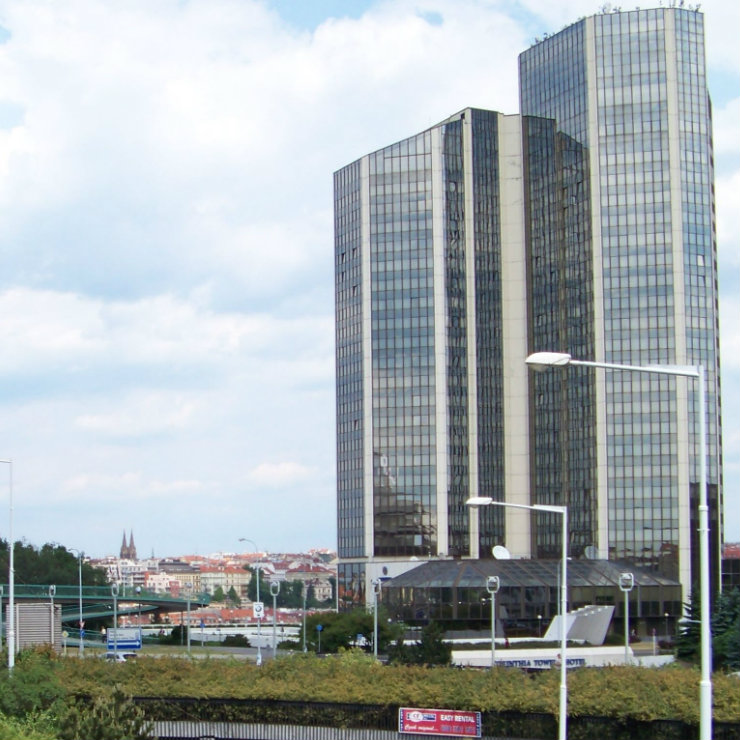German automotive industry at a crossroads
Category: Business

Pankrác, business part of Prague, Czech Republic (ŠJů, CC)
The signs are that deal flow will continue to be strong for the rest of 2016. “One of the key factors driving M&A in the Czech Republic is succession issues, where company founders are now reaching retirement age and are looking to sell. Another key reason is the amount of financing that potential buyers have available,” said Erik Bolebruch, head of M&A projects at investment agency CzechInvest.
A large number of Czech transactions involve Czech buyers – funds, companies and also wealthy individuals, for example former company owners looking to invest into new business ventures with the proceeds of the sale. In the case of start-ups particularly the number of potential local buyers often drives prices up, several company executives said.
With one of Europe’s lowest unemployment rates, acquiring companies to access qualified workers is a further M&A driver for some Czech companies.
Bankruptcy is another factor driving larger deals with two high-profile cases currently in the Czech Republic, OKD and Vitkovice. OKD has been hit by sharply declining coal prices and the Czech government is under pressure to step in, while several local industry players are also reportedly circling OKD and Vitkovice. Several advisers predict the government will have to move to save OKD given the huge number of workers.
One of the largest anticipated deals this year is the sale of the Czech Republic’s largest brewer Plzensky Prazdroj. The brewer is part of the Central European brewing operations sold by SABMiller as a condition of its merger with its peer AB InBev. A number of funds are interested in these assets.
But there are also several M&A deals done without any foreign investors. The Hartenberg investment fund, founded by Czech Finance Minister Andrej Babis (ANO) and another businessman, has bought a 70 per cent stake in the second biggest outpatient clinic in Prague, the Modrany health care centre, daily Hospodarske noviny (HN) reported. The value of the deal was not released.
Hartenberg representatives only said tens of millions will be invested in the modernization of the clinic, at which nearly 100 doctors work.
The Modrany outpatient clinic provides medical treatment for a part of the city with about 60,000 people.
The Hartenberg fund is administered by Jozef Janov, former investment director of the Penta Group, and Libor Nemecek, Agrofert acquisition director. Babis is the sole owner of the Agrofert group that consists over 250 chemical, food-processing, agricultural, wood-processing and other firms.
The Prague-Modrany outpatient clinic was owned by the Codum company from 1997. One of the three owners, doctor Jaroslav Bartak, sold his stake to his two partners in the company after his sexual harassment scandal broke out in 2011. In 2013, Bartak was sent to 14 years in prison for rape, blackmail and exerting sexual pressure.



